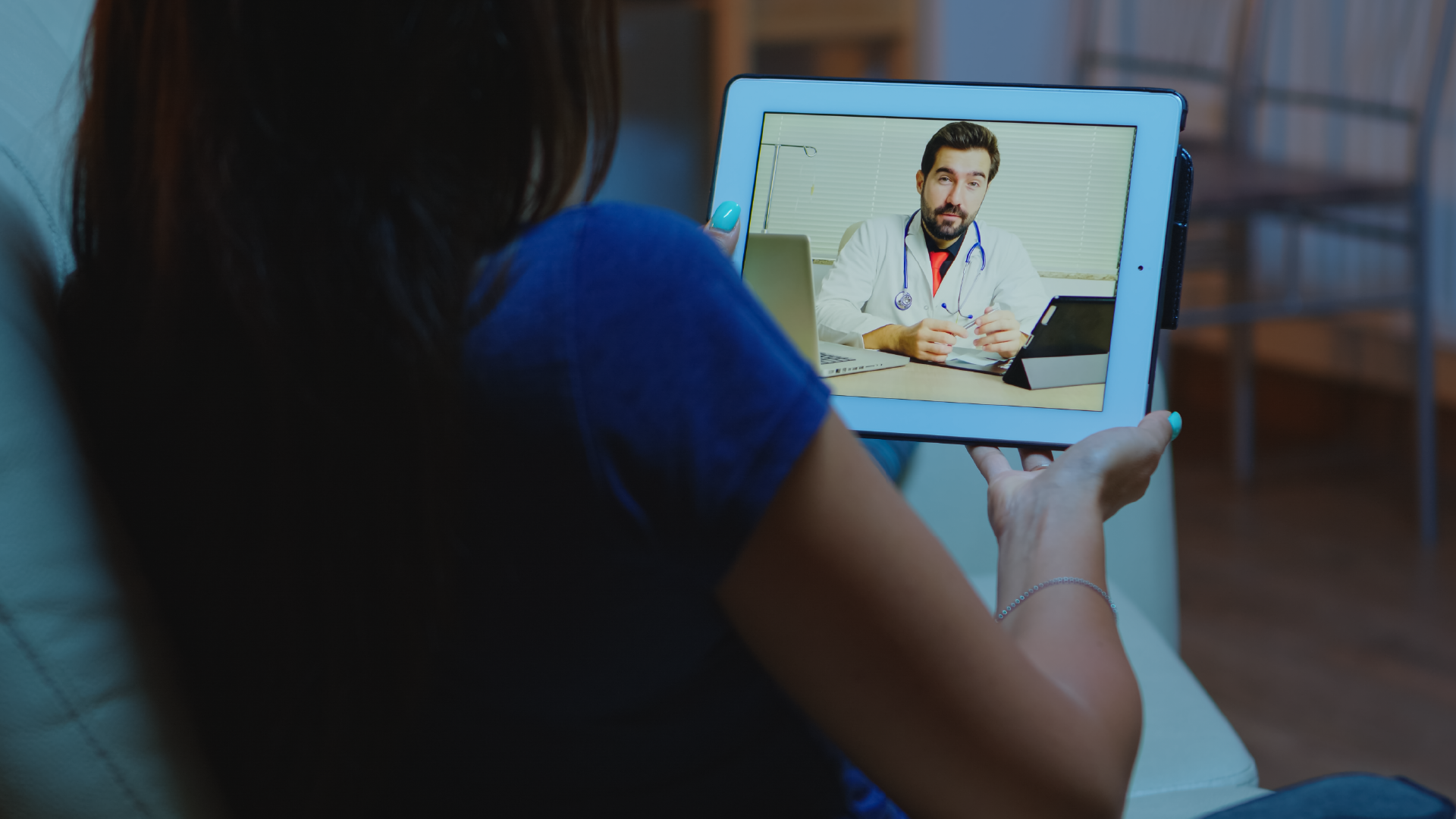Wednesday, Apr 15, 2020
How COVID-19 is Changing the Conversation Around Home-based Medicine
Michael Le, MDCo-Founder & Chief Medical Officer, Optum Home & Community / United Health Group

In response to the COVID-19 pandemic, our team will be interviewing experts from across the ecosystem to bring the HLTH community timely facts and updates.
About Dr. Michael Le:
Dr. Le is the co-founder and Chief Medical Officer of Landmark Health, the nation’s largest provider of in-home, value-based medical care. Dr. Le grew up a small town in western Massachusetts, where he watched his father practice small town medicine, including delivering house calls, black bag in hand, to frail patients in the community. Dr. Le is a passionate advocate for home-based medicine as the best setting of care for complex, chronic patients.
The COVID-19 pandemic has prompted many Americans to crack open their history books in an effort to draw inspiration and comfort from past crises we have confronted and overcome.
The Second World War provides an instructive case study.
To defeat the Axis Powers, we mobilized the full might of our nation’s economic, military and industrial capacity. We overcame the enemy, not just on the battlefield but on the home front as well: we re-tooled manufacturing plants, planted “victory gardens,” and organized scrap metal drives. The home front played a pivotal and enabling role in nourishing, dressing and equipping soldiers on the front lines.
Without the home front, we may have lost the war.
A similar dynamic is unfolding as the healthcare system wages total war on COVID-19. Right now, our hospitals are the battlefront—many ICUs and ERs in hotspot areas are bursting at the seams with COVID-positive or presumptive patients.
Today, just as we did during the war, we must not overlook the home front. We mean that quite literally: we must bring primary care to the home for our most clinically fragile patients, with the explicit intent of keeping those patients away from hospitals overflowing with COVID-19.
Home-based medicine is not a novel concept: in 1930, 40% of all physician-patient interactions happened in the home. By 1980, fewer than 1% of all primary care visits were house calls. The house call provider, once a cherished figure in the American healthcare landscape, became a victim of the mass industrialization of primary care.
But house calls are making a comeback.
As our nation ages, demand for in-home geriatric care is growing by leaps and bounds, and the volume of home visits is growing rapidly. Modern home-based medicine is advancing quickly and encompasses a broad scope of activities. As home-based physicians, we diagnose and treat medical, behavioral, and social conditions in the comfort of patients’ homes. We manage medications to reduce polypharmacy risk, conduct home safety checks, and facilitate conversations on advance care planning.
Homebound patients benefit disproportionately from access to in-home urgent medical care 24/7: if a frail senior feels short of breath on a Friday evening, or has abdominal pain on Christmas Eve, a home-based provider can be dispatched to the patient’s home to deliver urgent medical care, thereby avoiding an unnecessary trip to the hospital.
Across the country, though, there are millions of homebound seniors who have no access to home-based primary care. This problem is even more acute in the time of COVID-19, when the CDC is—correctly—instructing frail seniors to stay at home because of their susceptibility to the novel coronavirus. This vulnerable population, already socially isolated at baseline, is now even further disconnected from office-based primary care.
Many practices are trying to meet this gap by offering telemedicine, which we applaud.
But let’s be frank: telemedicine will never replace the healing hand of a physician, particularly for frail seniors with chronic conditions. At Landmark, we use telemedicine as a complement to (not a substitute for!) in-home medical care, and that reflects the reality of our population: 20% of our patients have cognitive impairment or dementia; 40% has hearing or vision loss; and fewer than one-third owns and can operate a smartphone. Telemedicine won’t suffice for these patients; home-based primary care is the only scalable option standing between these patients and an overflowing ICU.
Other players in the healthcare ecosystem have a role to play in promoting access to home-based medicine for frail seniors. CMS could incorporate home-based medicine into its network adequacy rules for Medicare Advantage plans. Health plans, in turn, should develop financial arrangements that reward high-quality, in-home medical care. And acute care facilities can partner more effectively with local house call providers to ensure that patients are safely transitioned from hospital to home.
Now is the time to recognize the vital role of the “home front” in the war against COVID-19. House call providers (both at Landmark and beyond) are racing to patient homes around the clock and across the country. These home visits are providing an essential service not just to these homebound and clinically vulnerable patients, but to the community as a whole. At a time when the nation is struggling with a daunting shortage of critical care beds, we on the “home front” owe it to our colleagues on the ER and ICU frontlines to keep elderly patients out of the hospital and safe in their homes.
You May Also Enjoy

Friday, Jan 27, 2023
SVB's 2022 Healthtech Report Reveals Strong Investment Opportunity in Mental Health

Christopher Moniz

Tuesday, Apr 14, 2020
How Businesses Can Collaborate to Support Their Communities and Build Trust During the COVID-19 Pandemic

Tuesday, Mar 9, 2021
Empowering A Changing Demographic

Andy Miller